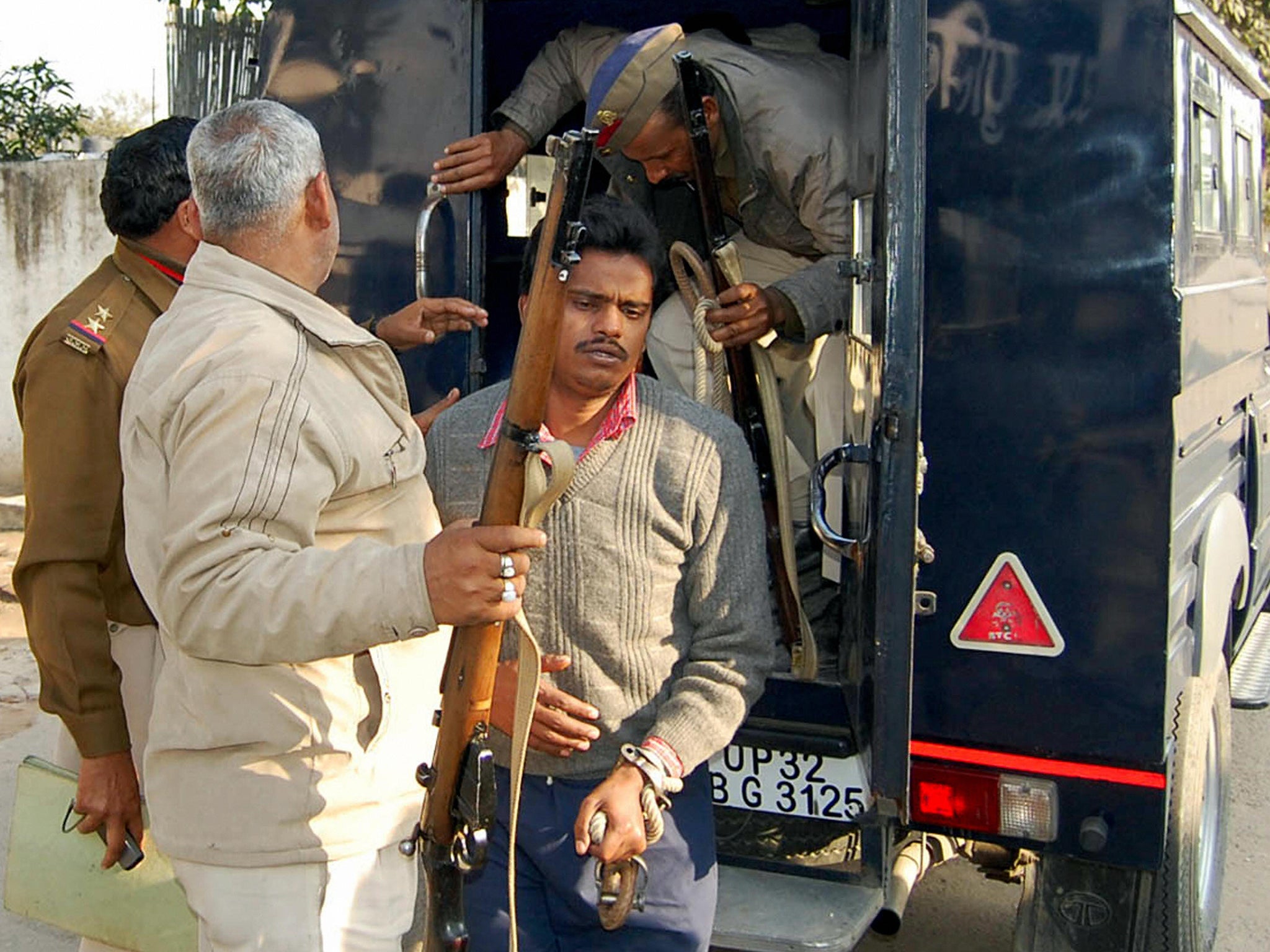'House of horrors' cannibal murderer who raped and dismembered 19 young women and children to be hanged in India
Surinder Koli, who also admitted necrophilia, said he had lured the children to the property with sweets and chocolates

Your support helps us to tell the story
From reproductive rights to climate change to Big Tech, The Independent is on the ground when the story is developing. Whether it's investigating the financials of Elon Musk's pro-Trump PAC or producing our latest documentary, 'The A Word', which shines a light on the American women fighting for reproductive rights, we know how important it is to parse out the facts from the messaging.
At such a critical moment in US history, we need reporters on the ground. Your donation allows us to keep sending journalists to speak to both sides of the story.
The Independent is trusted by Americans across the entire political spectrum. And unlike many other quality news outlets, we choose not to lock Americans out of our reporting and analysis with paywalls. We believe quality journalism should be available to everyone, paid for by those who can afford it.
Your support makes all the difference.India is preparing to execute a man accused of killing and dismembering almost 20 young women and children in a case that was called the “house of horrors” murders. He admitted eating some of the body parts.
Officials have said that Surinder Koli, who worked a domestic servant for a businessman who lived on the outskirts of Delhi, is due to be hanged next week.
In 2009, Koli and his employer, Moninder Singh Pandher, were convicted of murdering 14-year-old Rimpa Haldar. Mr Pandher was subsequently freed by a higher court.
The pair had been held in 2007 after body parts were discovered in the grounds of Mr Pandher’s home in Noida, a satellite city to the east of India’s capital.
At the time, police said they believed that at least 19 young women and children were raped, killed and chopped up. The remains of the children were discovered hidden in bags.
Koli, who confessed to cannibalism and necrophilia, said he had lured the children to the property with sweets and chocolates. Police were accused of failing to investigate some of the missing children cases because many of them belonged to poor, migrant families
Koli was found guilty of kidnapping, murder and attempted rape in at least five cases involving children.
“The hanging [of Surinder Koli] will be carried out on 12 September. All the rules and procedures will be followed,” SHM Rizvi, head of the Chaudhary Charan Singh jail in the city of Meerut, told the Press Trust of India news agency.
India’s Supreme Court has said the death penalty should be reserved only for the “rarest of rare” cases. There have been two executions carried out in recent years.
Mohammed Ajmal Qasab, the only surviving militant from the 2008 Mumbai attacks, was executed in November 2012 and in February 2013, a Kashmiri man, Afzal Guru, was hanged in secret after being convicted of an attack on India’s parliament. He had always insisted he was not guilty.
If the hanging proceeds, it will be first execution at the Meerut jail since 1975. The man lined up to act as the hang-man, Pawan Kumar, has never officially carried out an execution but has said he assisted his grandfather who was a hangman, as was his father.
In an interview with The Independent three years ago, Mr Kumar also claimed to have overseen one hanging himself when his grandfather was unavailable. He said he helped in his first execution in 1992.
“I tied the feet of the two men. My grandfather fitted the noose,” he said. “After that first execution there was no emotional feeling. I was not frightened because I had wanted to do it since childhood.”
Join our commenting forum
Join thought-provoking conversations, follow other Independent readers and see their replies
Comments